
As a Young Professional Focal Point for West Asia in CEESP (IUCN’s Commission on Environmental, Economic and Social Policy), I had the privilege of attending this year’s IUCN World Conservation Congress in Abu Dhabi, which convened more than 10,000 leaders, scientists, and policymakers from around the world from October 9–15 to establish a bold new vision for global conservation over the next two decades. Key outcomes included commitments to circular economics and the integration of equity and innovation into conservation efforts, while the first-ever World Summit of Indigenous Peoples set an important precedent in centering Indigenous perspectives and expertise.
My role as a CEESP delegate allowed me to engage directly in policy dialogues, contribute insights from my work in geoscience — particularly with an eye to the West Asian region — and connect with leaders, scientists, and fellow young professionals driving conservation action worldwide. What follows is my firsthand recap of the busy and fruitful time I spent in Abu Dhabi for this event!
October 8, 2025
Drawing on my experience as a Young Professional Focal Point, I dedicated weeks to organizing two Youth Summit sessions at the IUCN Congress.
The first was “Youth on the Frontlines of Nature Conservation,” in which I moderated a panel including inspiring young leaders and H.E. Razan Al Mubarak, President of the IUCN, steering a lively discussion on how youth, and particularly Indigenous and local communities, drive innovation, advocacy, and sustainable conservation efforts globally.
Panelists included Ahmad Hameed, Jessica Grefa, Humaira Badru, and Fatima Al Araby, who shared their experiences overcoming barriers to access, recognition, and equity as well as their strategies for further scaling youth leadership in conservation.
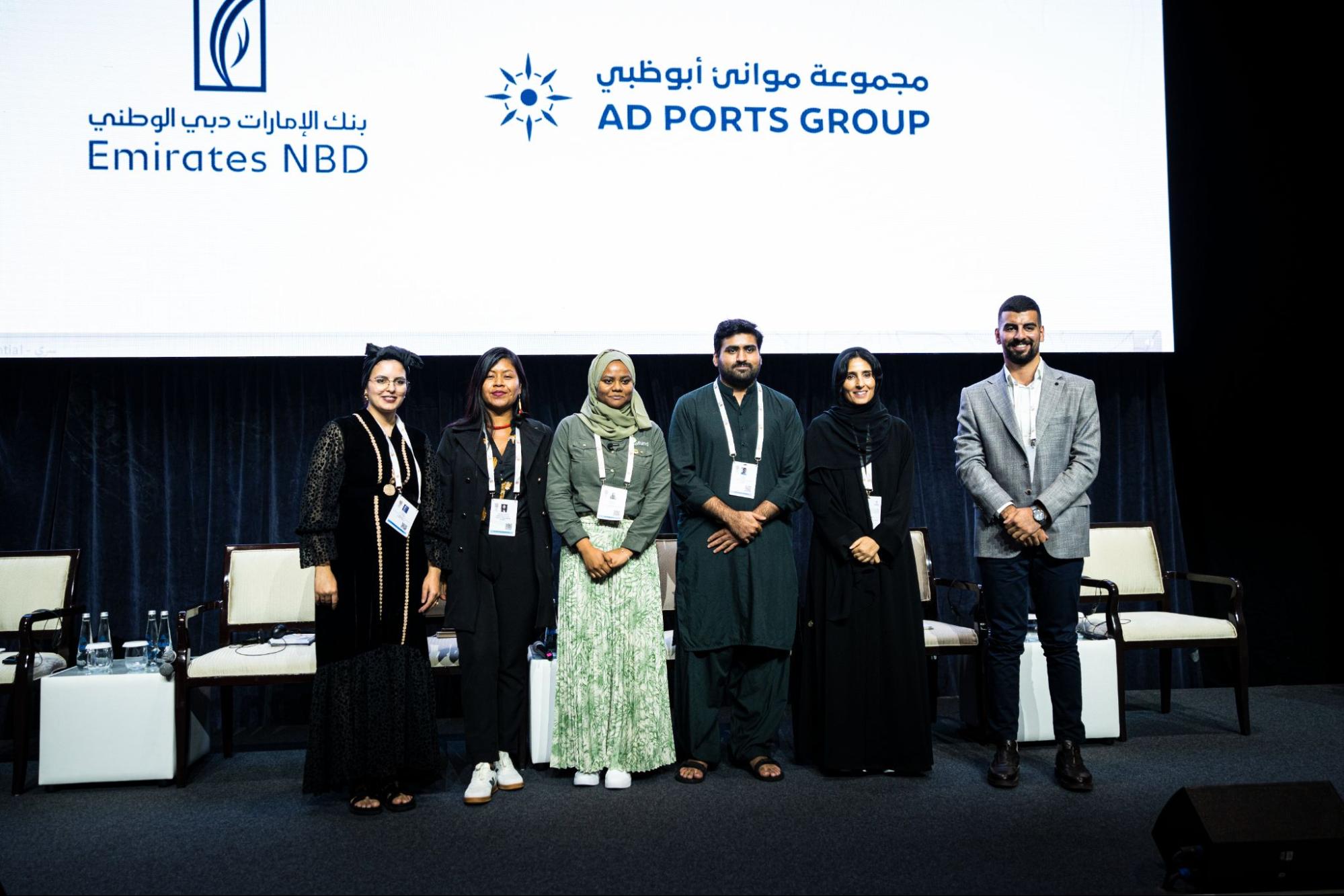
The “Youth on the Frontlines of Nature Conservation” panel poses on stage. From right to left: Georges Habib (Moderator), H.E. Dr. Razan Al Mubarak, Ahmad Hameed, Humaira Badru, Jessica Grefa, Fatima El-Aaraby. © Danny Skilton | IISD/ENB
The second event I organized and emceed was a TED-style session titled “Voices That Lead,” featuring six dynamic speakers: Noura Omar Al Naqbi, Saed Hanani , Vania Tejeda Gómez, Muneef Al Shammari, Tewende Emmanuel Sawadogo, and Sheherazade. Each delivered a compelling five-minute story on their personal journey in leadership and transformative action, inspiring young attendees to begin exchanging their own stories and powerfully demonstrating how individual experiences can spark global impact.
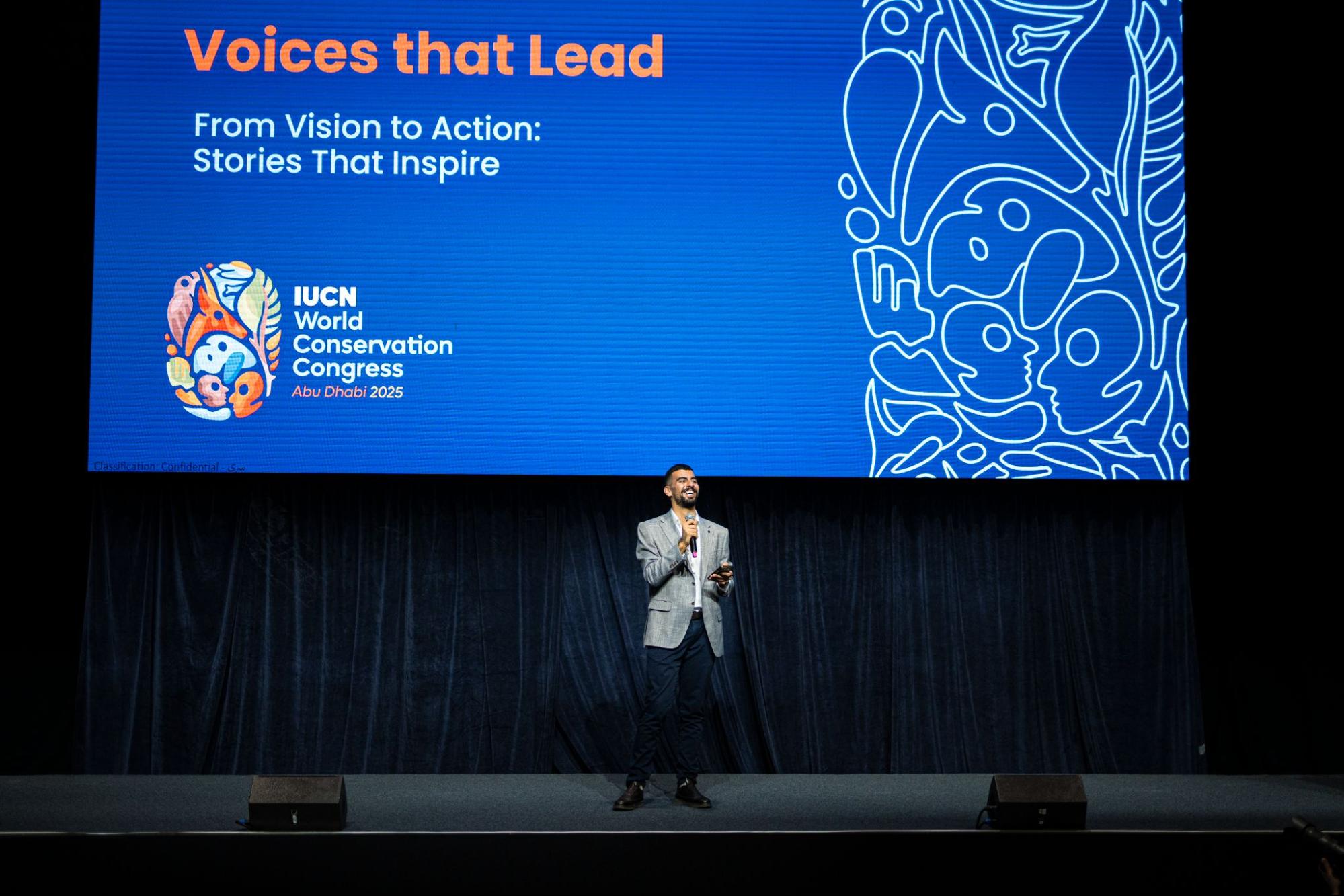
Georges Habib emceeing the TED-style session “Voices That Lead,” featuring speakers Noura Omar Al Naqbi, Saed Hanani, Vania Tejeda Gómez, Muneef Al Shammari, Tewende Emmanuel Sawadogo, and Sheherazade. © Danny Skilton | IISD/ENB
October 9, 2025
Beyond my Youth Summit work, I was actively engaged throughout the Congress, attending the Opening Ceremony and several key sessions led by the IUCN Energy Transition Team.
The opening set an inspiring tone, featuring global leaders and conservation champions emphasizing collaboration for a nature-positive future.
During the week, I followed discussions on renewables for nature and biodiversity-friendly development, gaining valuable insights into how the energy sector can align with conservation goals and community well-being.
One highlight was the signing of the IUCN–IRENA Memorandum of Understanding, marking a step forward in promoting a just and nature-positive energy transition.
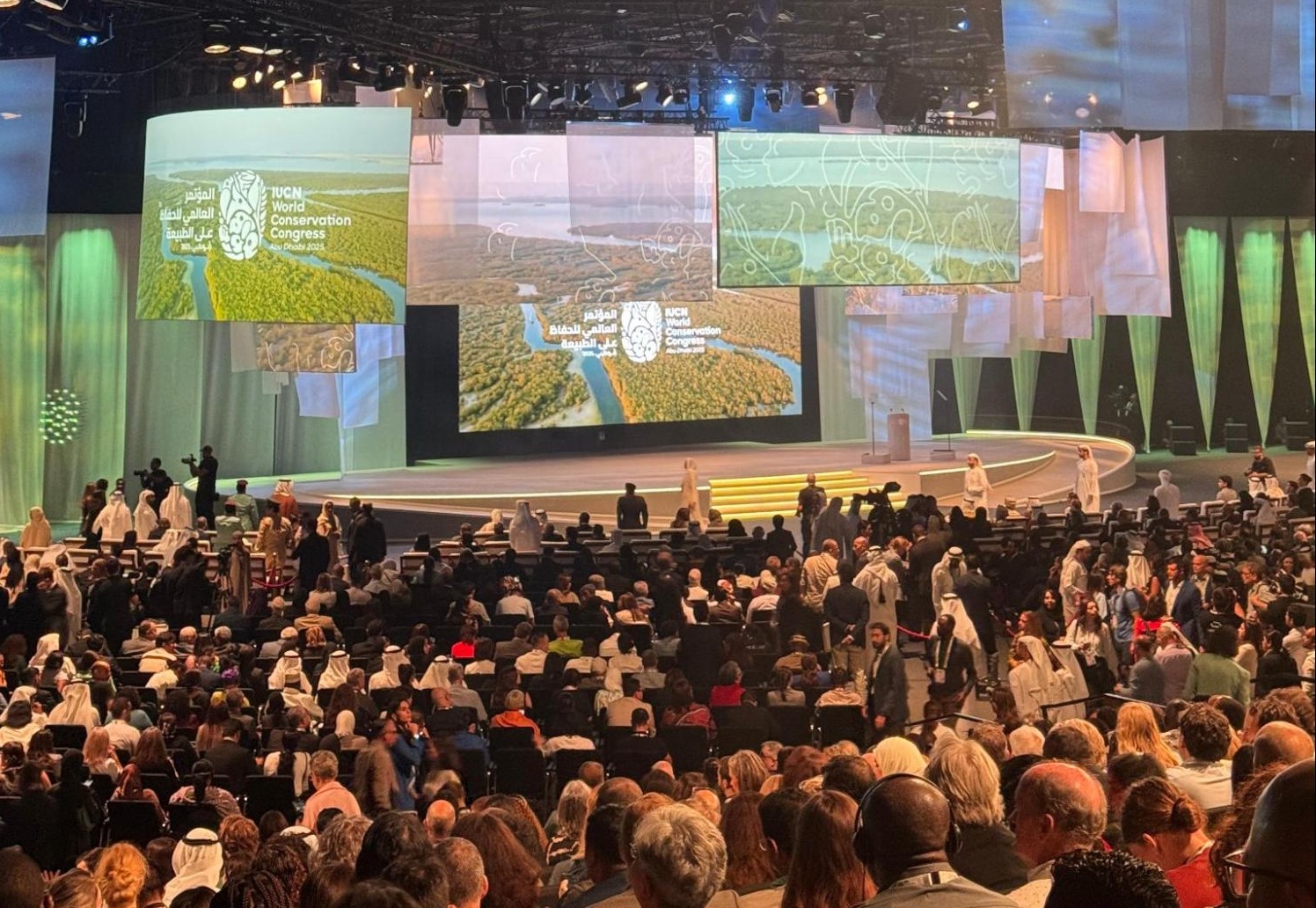
International Union for Conservation of Nature (IUCN) World Conservation Congress Opening Ceremony, Abu Dhabi, October 9, 2025. © Georges Habib, IUCN CEESP.
October 10, 2025
I attended the IUCN–Ipieca Memorandum of Understanding (MoU) signing, which renewed the partnership between the two organizations to advance biodiversity conservation and support a nature-positive energy transition. Ipieca, the global oil and gas industry association focused on addressing environmental concerns, works closely with the UN and IUCN to help align corporate energy practices with international climate and biodiversity goals. The session, moderated by Qiulin Liu, featured remarks from Sophie Depraz (Ipieca) and Stewart Maginnis (IUCN).
Later, at the All Commissions Knowledge Hub, I delivered a brief intervention as the CEESP West Asia Young Professional Focal Point, highlighting the RCF 2024 Youth Pavilion and Tech4Nature Summit, UNCCD COP16 youth engagements, the IUCN WCC Youth Summit, and CEESP’s West Asia & Africa social media strategy.
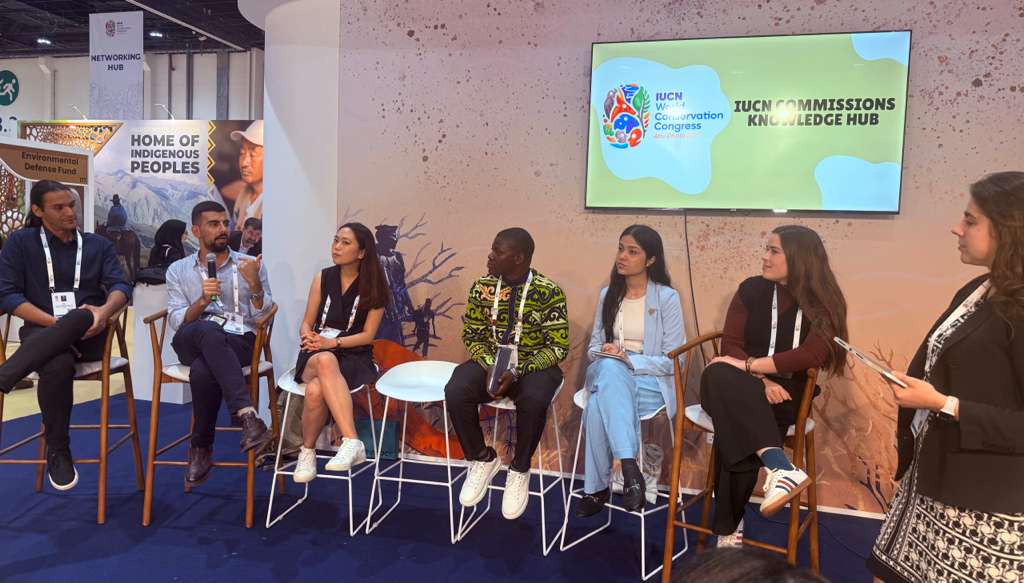
Georges Habib delivering a brief intervention at the All Commissions Knowledge Hub in his capacity as CEESP West Asia Young Professional Focal Point, highlighting youth initiatives and regional engagement strategies. © Iben Caroline Munck, IUCN CEESP.
October 11, 2025
This day began with a refreshing kayak tour at Jubail Mangrove Park that offered a firsthand glimpse into Abu Dhabi’s thriving coastal ecosystems and nature-based conservation efforts. I then participated in the “1 vs 20 Youths” session on nature-positive economies organized by the Ministry of Climate Change and Environment (MOCCAE), where I presented on the limitations of traditional GDP metrics in reflecting environmental and social well-being.
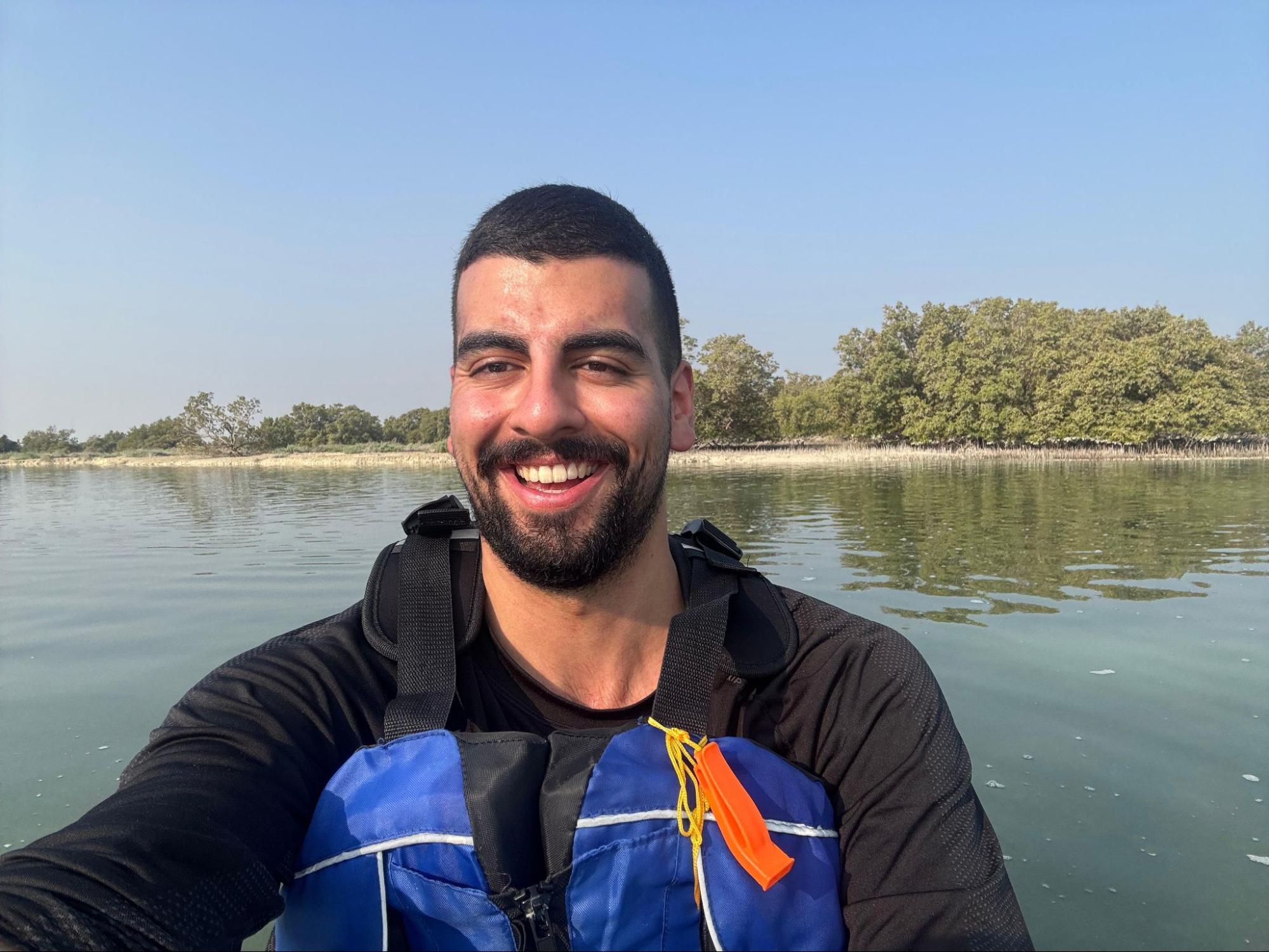
Georges Habib enjoying a kayak tour at Jubail Mangrove Park, Abu Dhabi, a vital coastal ecosystem that protects biodiversity, supports carbon sequestration, and demonstrates the importance of mangrove conservation and nature-based solutions. © Georges Habib, IUCN CEESP.
The day concluded at the IUCN Youth Pavilion, where I spoke in a session on “Youth Engagement in the Arab World.” I highlighted efforts to create more opportunities for young Arab professionals to get engaged, lead, and influence conservation policy. We also discussed strategies for leveraging regional social media and other networks to amplify Arab voices and ensure they are represented in IUCN decision-making processes.
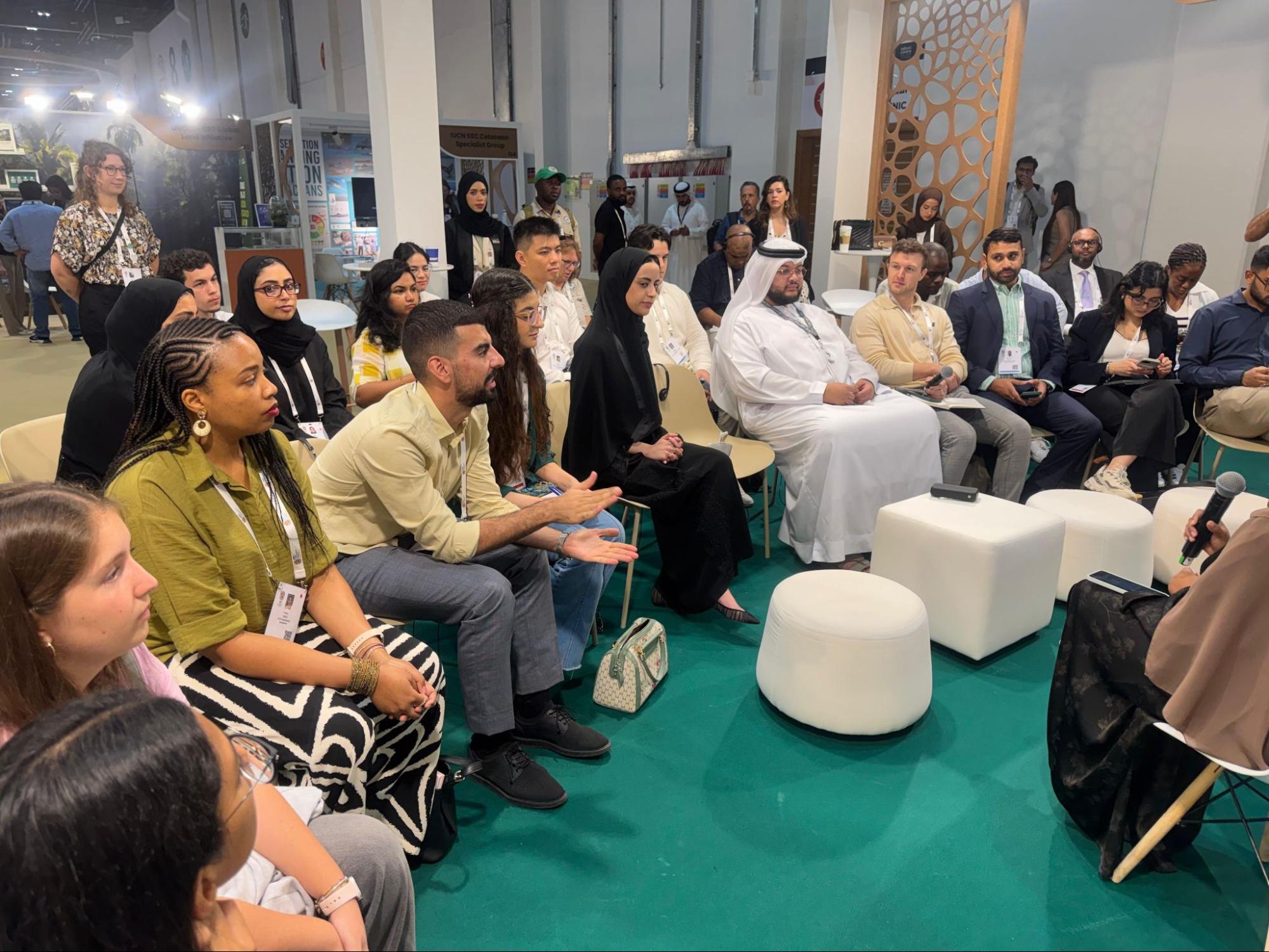
Georges Habib participating in MOCCAE’s “1 vs 20 Youths” session on nature-positive economies, sharing insights on the limitations of traditional GDP metrics in capturing environmental and social well-being. © Nahla Noobi, Ministry of Climate Change and Environment (MOCCAE).
October 12, 2025
This was the day of the IUCN Youth Pavilion Reception, a vibrant occasion for networking and youth engagement. A personal highlight was the CEESP Young Professionals Award Ceremony, where Fatima El-Aaraby and I were honored for our contributions to amplifying youth voices and fostering leadership in conservation.
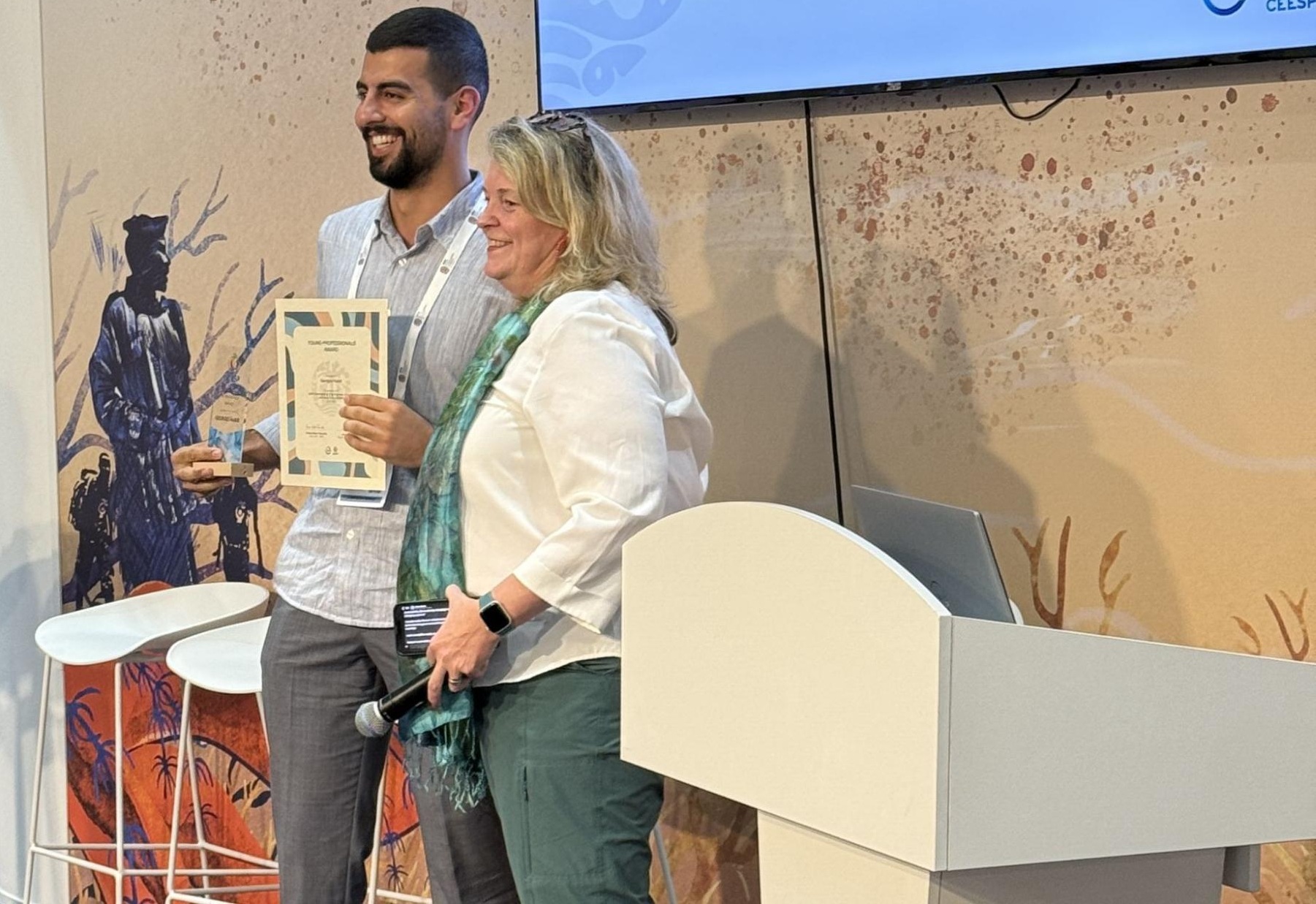
During the IUCN World Conservation Congress in Abu Dhabi, Kristen Walker Painemilla, the chair of CEESP (2016-2025), presented the CEESP Young Professionals Award to Georges Habib in recognition of his outstanding contributions to amplifying youth voices and leadership in conservation. © Fanny Tricone.
October 13, 2025
On the final day of the Conservation Congress, I moderated the “Next-Gen Conservation: Integrating Technology, Science, and Sustainable Design” session hosted by the IUCN Arabia Pavilion. This panel featured emerging leaders blending innovation, science, and sustainable practices to advance conservation. Panelists included Fatima El-Aaraby, Zahra Husain, Monir Aziz, and Oussama Bououarour, with each sharing insights from their work in areas such as ecological construction, biodiversity monitoring, and nature-based solutions.
Later, during the Members’ Assembly, I participated in the launch of Vol. 24 of Policy Matters, the IUCN CEESP’s flagship journal. This issue, titled “Reimagining Conservation: A Call to Transform How We Care for the Planet,” explores novel approaches to key dimensions of conservation, including action, leadership, and partnerships. It emphasizes the need for a paradigm shift in conservation practices to address global environmental challenges effectively.
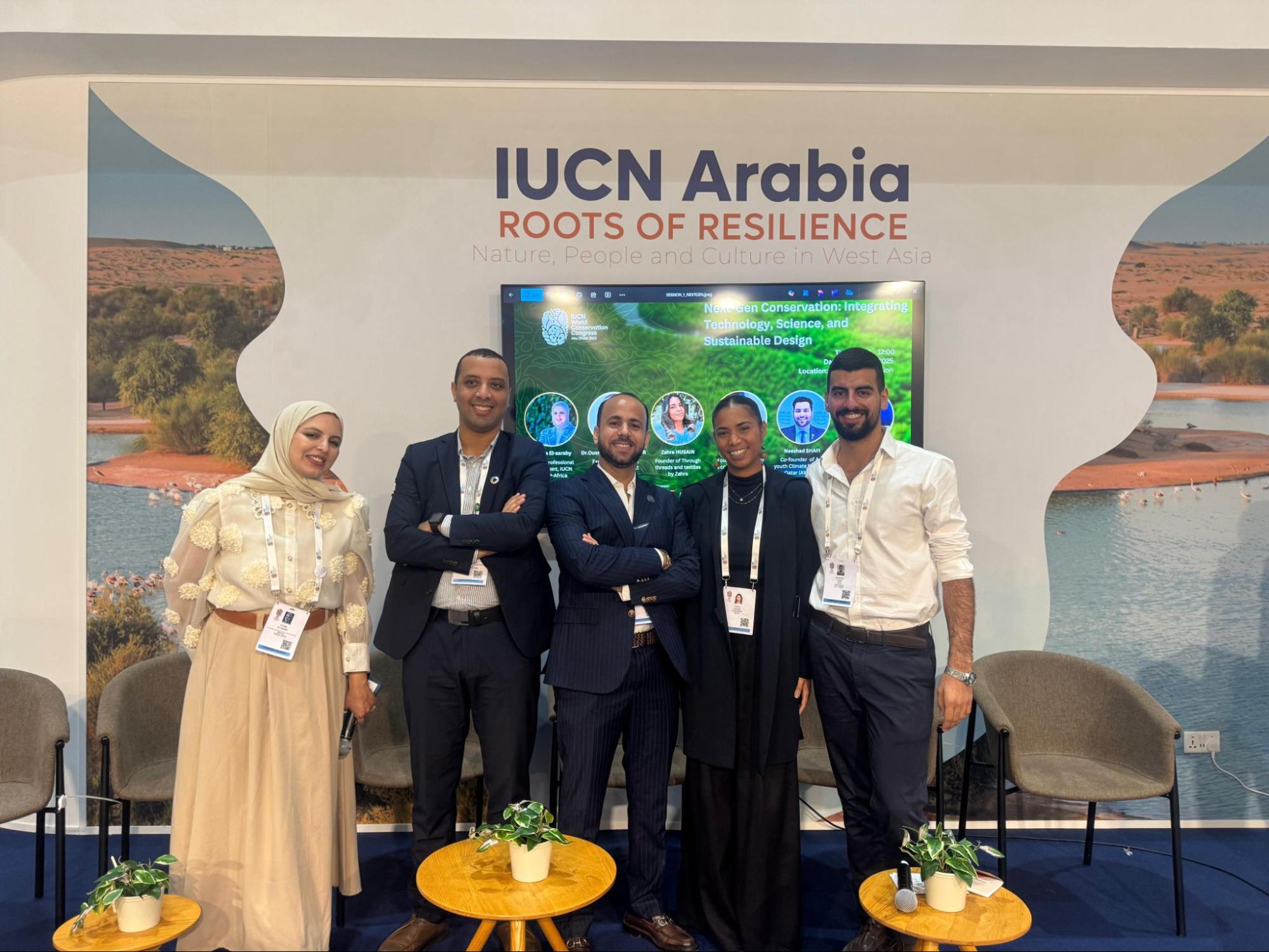
A group photo at the IUCN Arabia Pavilion featuring the participants in the “Next-Gen Conservation: Integrating Technology, Science, and Sustainable Design" session. From right to left: Georges Habib (Moderator), Zahra Husain, Monir Aziz, Oussama Bououarour, Fatima El-Aaraby. © Mirna Hamdan, IUCN ROWA.
What’s Next?
The IUCN World Conservation Congress was a powerful reminder of what’s possible when people come together for nature. Seeing so many leaders, scientists, and young changemakers share ideas, perspectives, and stories made it clear that conservation isn’t just about policy — it’s about people, communities, and collaboration.
Now, the focus is on keeping that energy alive: turning conversations into action, supporting youth and Indigenous voices, and finding practical ways to make a difference for both people and the planet. The Congress left me with a sense of hope and possibility that the work being done today can shape a better tomorrow.
Georges Habib is an engineering geologist with a growing passion for the energy transition and climate communication. With a strong technical foundation in earth sciences and geotechnics, he is expanding his focus to explore how geology can support clean energy, climate resilience, and sustainable infrastructure.
Banner photo of Abu Dhabi courtesy of Iva Prime, Pexels.



